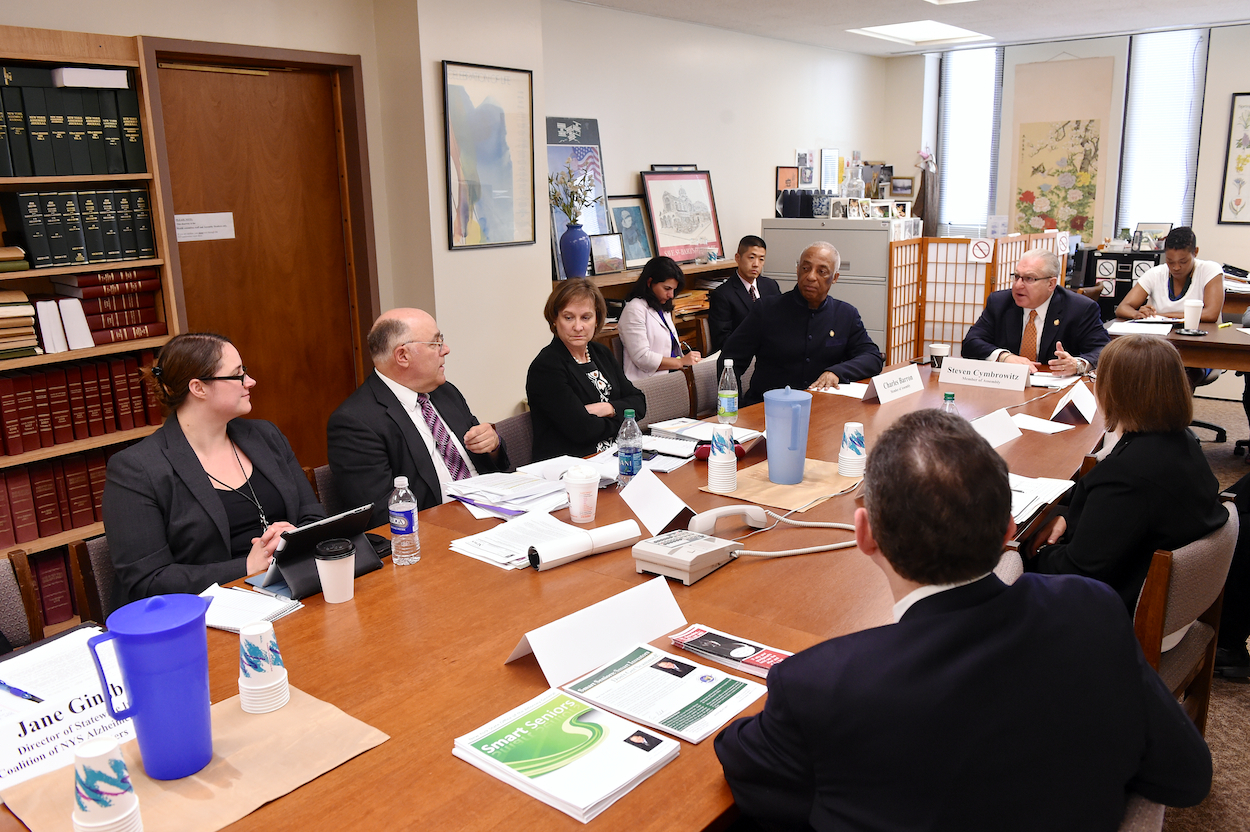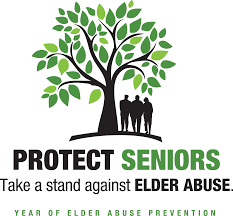Assemblyman Steven Cymbrowitz, Chair of the Committee on Aging, presided over a roundtable discussion in Albany recently on elder abuse, a problem that affects approximately 260,000 older New Yorkers each year in the forms of physical, emotional or financial elder abuse, caregiver neglect, or a combination thereof.
Participants at the roundtable — including representatives from the NYS Office for the Aging, Office of Children and Family Services, NYS Attorney General, LiveOn NY, Alzheimer’s Association, LifeSpan, and the Coalition Against Domestic Violence — talked about the definition of elder abuse, what State agencies are doing to address the problem, and how the State can better identify elder abuse victims and connect them with the help they need.
Also in on the discussion was East New York Assemblyman Charles Barron.

“Elder abuse is a problem that cuts across race, religion, culture and income lines,” Cymbrowitz said. “In seeking to address this problem legislatively, it is critical that we do so from a balanced perspective. We need to remember our mandate to protect seniors but at the same time respect older New Yorkers as individuals and not take away their rights.”
One way that abusers prey on vulnerable seniors is through phone “scams.” Panelists said seniors should be wary of what’s known as the Grandparent Scam, where the scammer catches a senior off-guard, usually in the middle of the night, claiming to be a favorite grandson/granddaughter who’s been arrested and needs money. The caller gives specific directions for the senior to send money and advises him/her not to tell anyone else for fear of embarrassment. These scammers are usually outside the U.S. The Attorney General’s office does direct outreach on scams and works with other agencies and organizations to spread the word.
Financial exploitation is a prevalent form of elder abuse with tragic implications, participants said. Seniors who have their finances drained can’t take care of their own needs and are forced to rely more on public assistance and Medicaid. Often, seniors who have been abused experience decreases in quality and length of life from which they never recover.
Seniors often feel shame about reporting abuse, may not recognize that the abuse is taking place, or are unwilling to report abuse because they don’t want their loved one to go to jail and/or don’t know what will happen to them without their caregiver. Panelists discussed the need for more funding for community-based services, which provide a safety net for seniors and would lower the rates of abuse by ensuring that seniors are happy and healthy. Additional caregiver supports would assist families who want to keep the seniors at home, but prevent instances of abuse linked to improper caregiving and burnout.
 Panelists noted that it is often difficult to investigate suspected elder abuse because seniors with dementia and Alzheimer’s may not be able to give an accurate accounting of what has occurred. Due to the age of the victim the senior may not survive long enough for a case to come to trial.
Panelists noted that it is often difficult to investigate suspected elder abuse because seniors with dementia and Alzheimer’s may not be able to give an accurate accounting of what has occurred. Due to the age of the victim the senior may not survive long enough for a case to come to trial.
The experts brought up new strategies that are being explored for addressing elder abuse. One such idea is opening elder abuse shelters, beds in facilities that form a network of places where an elder abuse victim can be hidden for a short period of time to recuperate while their case is being investigated. Participants also talked about enhanced multi-disciplinary teams that bring together people from municipal agencies, law enforcement, community-based organizations that provide assistance with elder abuse victims and investigations, and a forensic accountant to better investigate claims of elder abuse, ensure a higher conviction rate, and more restitution for victims.
“The stakeholders who attended this roundtable are well-acquainted with the devastation that elder abuse causes its victims and loved ones,” said Cymbrowitz. “I look forward to continuing to work with these agencies and organizations to better empower our seniors and find innovative ways to keep our older New Yorkers from being targeted in the first place.”






